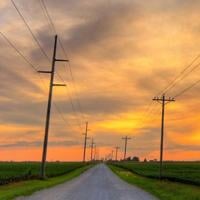As Farmfest gears up to welcome thousands of attendees to southern Minnesota, one panel will zoom in on a challenge that transcends state lines and fencerows: reliable broadband access.
The Minnesota Governor’s Task Force on Broadband will host a listening session during Farmfest’s second day, Wednesday, Aug. 6, bringing a multi-stakeholder group face-to-face with the very people most affected by poor rural connectivity.
The task force includes representatives from agriculture, education, health care, small business and broadband providers. They advise the governor’s office on how to close the state’s digital divide. At Farmfest, they’re looking to hear from farmers and rural residents themselves.
“This work only matters if it reflects the lived reality of the communities we’re trying to serve,” said Teddy Bekele, Land O’Lakes executive and Task Force member.
For producers in Minnesota, Iowa and South Dakota, broadband has become more than a convenience, it’s now an operational necessity. Everything from precision planting and remote grain bin monitoring to online grain marketing depends on fast, reliable data. Yet according to the task force’s 2024 report, more than 160,000 Minnesota households still lack basic service, defined as 25 Mbps download and 3 Mbps upload speeds.
The task force session at Farmfest is one of just a few opportunities this year for the public to speak directly with the group in person. Attendees can share connectivity frustrations, suggest improvements, or ask questions about available grant programs, including the state’s Line Extension Program and the federally funded BEAD initiative (the Broadband Equity, Access and Deployment program).
Bekele, who oversees tech strategy at Land O’Lakes, sees broadband not only as a rural quality-of-life issue, but also a key enabler of modern agriculture.
“Agriculture is data-driven,” Bekele said. “Without connectivity, a farmer can’t access tools that drive efficiency, sustainability, or profitability.”
Beyond producer access, the panel will also address broader issues like affordability, workforce shortages, permitting delays and infrastructure gaps, challenges that rural leaders across the upper Midwest know well.
Although the Minnesota Broadband Task Force was appointed by Gov. Tim Walz and focuses primarily on Minnesota residents, its work offers a potential blueprint for regional cooperation. Many broadband barriers, such as technician shortages or the costs of last-mile delivery, aren’t unique to any one state.
Farmfest attendees will find the broadband panel on the Wick Buildings Farmfest Center Stage from 2:30-4 p.m. Wednesday. Members of the public are encouraged to attend and ask questions.
“Ensuring they have the tools to thrive is no longer optional, it’s urgent.” Bekele said.
The task force’s full reports, meeting notes, and broadband maps are available at mn.gov/deed/broadband.
